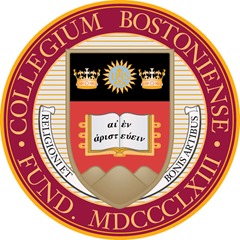Hey, gang. My name’s Max Lindenman, and I’ll be your Anchoress today. Elizabeth, your regularly scheduled Anchoress, is down for the count. I have taken it upon myself to play her Yiddishe mama, and beg her to see a doctor. She has promised she will.
I told her, “Someday you should have an editor who gives you tsuris like you’re giving me!”
Anyway, moving right along…
Teasing out all the implications of the Dallas Charter is going to take a lot longer than anyone would like. The terms that set the ground rules are all very fuzzy, and leave plenty of room for interpretation. Every diocese constitutes a jurisdiction unto itself; every review board represents the confluence of separate personalities. No one should be surprised if the results, taken together, produce an inconsistent and confusing picture.
In this, I suppose, canon legal proceedings have a lot in common with civil legal proceedings. You’ve heard the expression: “law is what the judge had for breakfast that morning”? Well, if we change “judge” to “review board” or “panel of canon judges,” or even “chancery officials,” we might arrive at the beginning of truth.
This very helpful article from National Catholic Reporter explains that diocesan review boards function roughly like grand juries, or like judges at preliminary hearings. They review the evidence alleging that a priest has harmed a young person; if they decide the evidence is “credible,” they remove him from ministry pending trial.
As the article points out, no precise definition for “credible” exists — at least not yet. It takes its meaning from the phrase “semblance of truth” found in Canon 1717. For evidence to have the semblance of truth, it must “seem true.”
Before allowing a criminal case to proceed to trial, judges and grand juries in secular courts require the prosecution to show “probable cause,” or “information sufficient to warrant a prudent person’s belief that the wanted individual had committed a crime.” That a given allegation “seems true” sounds a much stronger statement. Some might find it draconian that investigators can place the accused under such a high level of suspicion after only a quick investigation.
But in Philadelphia, we’re seeing how diocesan officials can leave review boards out of the loop. Last February, according to Ana Maria Catanzaro, a member of Philadelphia’s review board, a Philadelphia grand jury issued a report, criticizing the review board for failing to suspend priests accused of abusing minors:
The partial information we have received was enough to appall us. At least 10priests who were accused of sexual abuse sometime before 2005 remain in ministry within the Philadelphia Archdiocese today. Another 10 priests remain in ministry today despite more recent accusations – ones made since January 2005. In addition, 4 priests accused since January 2005 were kept in their assignments after they had been accused, but have since either died, been transferred to another diocese, or been removed. And 17priests are currently in ministry even though the Archdiocese is on notice of “inappropriate behavior with minors.”
Catanzaro writes that the review board had only reviewed 10 of those 41 cases, and had decided that the allegations had no merit. That other priests had been accused was news to board members.
…until the grand-jury report came out, the board was under the impression that we were reviewing every abuse allegation received by the archdiocese. Instead, we had been advised only about allegations previously determined by archdiocesan officials to have involved the sexual abuse of a minor—a determination we had been under the impression was ours to make. The board still doesn’t know who made those decisions.
Lately, I’ve noticed certain Catholics telling themselves that the Dallas Charter presents malicious laymen with a golden ticket for destroying the priesthood. If Johnny X so much as whispers to his bishop that Fr. Y said he looked handsome in his new tie, the bishop will hang Father from a meathook and feed his body to dobermans. Thereupon, Johnny’s family can demand a settlement on which they can live comfortably until Christ’s return.
Apparently, it ain’t that simple.











